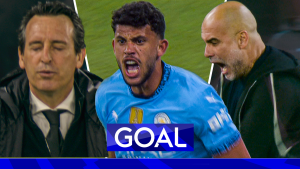Erasmus and co have Boks poised for a 3rd World Cup title


TOKYO (AP) — The man who has shaped the Springboks revival decided to take a back seat for a while.
Rassie Erasmus had delivered his team news for a Rugby World Cup knockout game, 24 hours ahead of schedule, and answered questions in front of the cameras.
Then he took a seat within the media scrum and listened to what his assistant had to contribute. That’s how he rolls.
“I just want to hear what they’ve got to say,” Erasmus explained, speaking of Jacques Nienaber as well as two players who’re members of what the Springboks are calling the “bomb squad” — the reserves bench on match day.
That was before the semifinal win over Wales. Now they’re just 80 minutes away from a third world title, and he’s still talking and listening.
South Africa has won both previous times it reached the final — against New Zealand at home in 1995 and against England in France in 2007 — and Erasmus wants to make it 3-0 with a win over England on Saturday.
The 46-year-old Erasmus, a backrower who played 36 tests for the Springboks before going into coaching, has been pulling together ideas, staff and players from everywhere since returning from Irish province Munster with the mission of remaking a South Africa team the country can be proud of.
Erasmus met Nienaber when they were both doing national service in the army. They stayed in touch at university and when Erasmus was a player and Neinaber was a physiotherapist.
“He was much better in the army than I was,” Neinaber said. “He was a very good tactician, as you can see.”
They both went into coaching and eventually teamed up at Munster, but both decided to answer the call of duty again when the Springboks were in tatters after some record defeats. They’d lost their way as a team with a clear identity. Erasmus and Neinaber put the resurgence down to one thing, for players, staff and coaches: no egos.
The turnaround since the start of 2018, when Erasmus took over as head coach, has been vast. He has consistently credited the improvement with the fact everyone had bought into playing in the traditional Springboks style. Hard, uncompromising, direct, big forward packs, sharpshooting kickers out of hand and off the tee, and backs who can turn defense into attack.
They beat New Zealand in Wellington in 2018, and held the All Blacks to a 16-16 draw there this year en route to winning the Rugby Championship, South Africa’s first title in the southern hemisphere’s annual competition since 2009.
The loss to the All Blacks in their opening pool game at the World Cup last month is South Africa’s only defeat of 2019.
Erasmus is articulate, intelligent and confident he can set out a winning formula and stick to it. He’s also adept at marshaling all resources.
He selected flanker Siya Kolisi as the Springboks’ first black captain, and it had galvanizing affect for a team trying to unite a country.
He has willingly recalled players who’ve gone to get experience overseas, from flyhalf Faf de Klerk at Sale Sharks in England to Cheslin Kolbe and Francois Steyn, who are playing in France.
Steyn played in the World Cup final in 2007, at age 20, and in the 2011 tournament but missed the 2015 edition and spent years out of Springboks calculations.
“He is definitely a calming factor in the team, because he doesn’t stress out a lot,” Erasmus said of the 32-year-old utility back. “That is why it is wonderful to have him on the bench, covering so many positions.
“It doesn’t matter if you are ahead on the scoreboard or behind — he just enjoys the game, no matter what the situation is.”
Steyn is the only member of the squad with experience of a Rugby World Cup final. Erasmus said that puts him ahead of the coaching staff, which has to work out a way to beat an England team coached by Eddie Jones, who helped Australia reach the final in 2003 and contributed to South Africa’s winning campaign in ’07.
“I haven’t coached at a World Cup before as a head coach. So, the pressure is on and we feel the pressure,” Erasmus said. “We are excited, but we feel the pressure and find our ways to handle it, and try to work around it.
England “would have the upper hand in terms of Eddie’s experience, both with South Africa and Australia. But we have tried to find our own ways to handle that, and so far, so good. But certainly, Saturday will be that big step for us to see if we can go that last step.”
South Africa placed second to New Zealand in Pool B, setting up a course to the final that avoided the All Blacks and instead pitted them against Japan — in the quarterfinals for the first time, and with the support of an entire host nation behind them — and then Wales.
They shut down both teams in the knockouts, conceding just one try in two games. They’re expecting an immense confrontation with England, the team they beat 15-6 in a tryless final in ’07. England took on the All Blacks with a tenacity that Erasmus said took their physicality to a “next level,” in the 19-7 semifinal win, but the Springboks are prepared for that. They’re ready to meet, head-on in Yokohama.
Winning the title is the ultimate aim, Erasmus said, but another KPI is having a team that is consistently in the top three.
“Because with our crowd support and our numbers, the amount of people and everything we have in South Africa, they deserve that,” he said.





